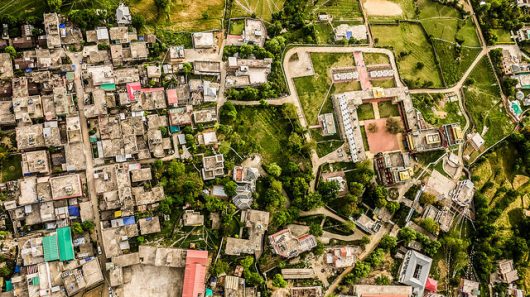Universal Basic Income in India

Universal Basic Income (UBI) refers to an unconditional sum of money given by the government to all citizens, via cash transfer, regardless of their wealth. The goal of such a scheme is to guarantee that all citizens of the country are able to support themselves and fulfill their basic needs.
Benefits of Universal Basic Income
Arvind Subramanian, Chief Economic Advisor to the Government of India, believes that Universal Basic Income will be a reality in some states in the country within the next two years. He argues that such a scheme will be more effective and easier to administer, compared to other welfare programs administered by the government.
The Economic Survey of 2017 highlighted the benefits of Universal Basic Income in India as a means to alleviate poverty. The report mentions that such a scheme must first and foremost be unconditional and universal, and thus it will promote social justice, productivity and economic equality. The poor would be empowered to decide how to spend their money most efficiently, based on their individual needs.
Individuals would also have the ability to select their employment conditions more carefully, instead of being forced to work in exploitative conditions simply because of the desperate need to provide for themselves and their families.
The report asserts that UBI is an effective scheme, and should replace existing subsidies that are given with the lofty aim of alleviating poverty. However, it also makes a specific mention that the political climate might prove to be an obstacle to achieving this goal. Universal Basic Income in India cannot replace state capacity but it could and should complement it.
UBI would especially empower women by providing them with greater economic independence. Having their own reliable source of income would enhance their agency, make them less dependent on men and will be a step to narrow the gender inequality and the overarching sway of patriarchy.
Such a scheme would also encourage citizens to utilize financial systems and establish credit. Not only will this enhance the financial knowledge of citizens, but it will be profitable for banks in India. Allowing previously socioeconomically marginalized groups to access formal credit systems will reduce their reliance on informal loans and exploitation by moneylenders.
Critics of UBI
Critics of Universal Basic Income argue that giving unconditional cash to citizens will encourage them to spend it recklessly on alcohol, gambling and drugs and that this would actually reduce the incentive to work. However, basic income experiments conducted in a village in Kenya over a 12-year period show that most participants used $22 per month allowance on basic necessities and did not squander the money.
The UBI pilots in India were funded by UNICEF and the Self Employed Women’s Association (SEWA) and operated in rural villages of Madhya Pradesh, in 2011. These pilots showed largely positive results- the beneficiaries were using the money wisely by investing in education, household expenditure and food. A report published by SEWA found that unconditional cash transfers helped improve productivity, financial stability and health of the people.
The pilot study measured only the short-term impact of UBI, and critics argue that the long-term impact cannot be measured so easily and thus we cannot really assess if the scheme is feasible.
This innovative approach offers the prospect of empowering the poor and providing them with basic necessities. Previous studies have shown its positive impact on poverty alleviation on social, political and economic levels.
– Isha Kakar
Photo: Flickr
